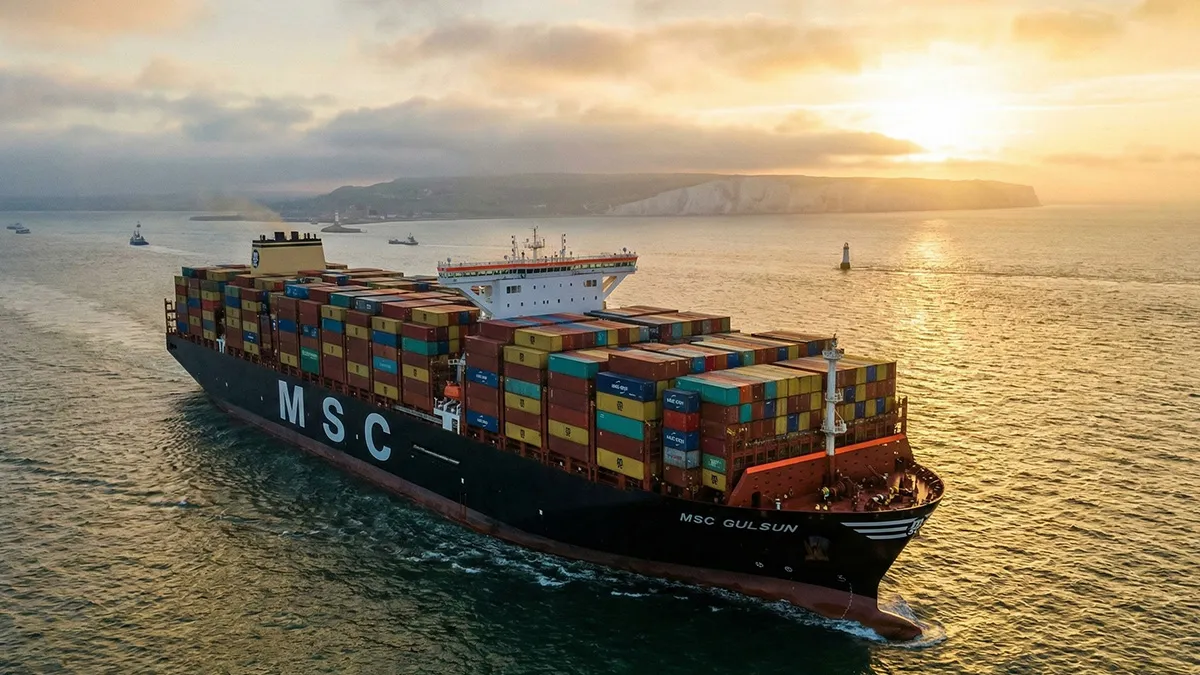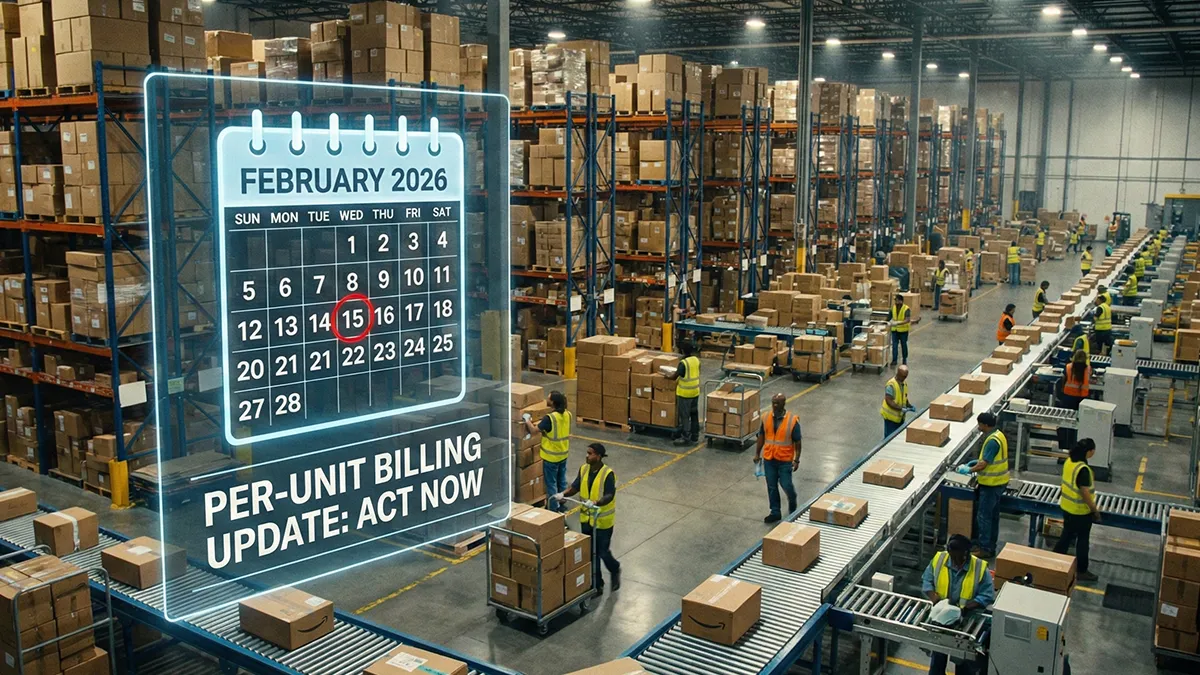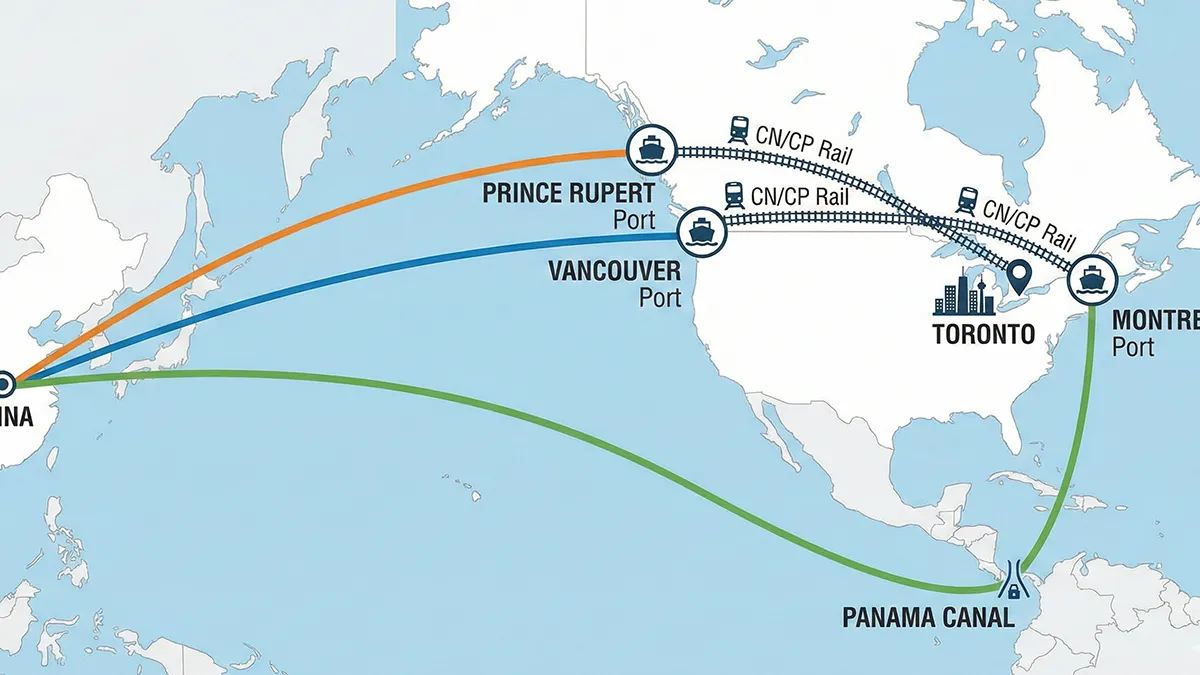What is the FCA Incoterm? Free Carrier Shipping Terms Explained
In international trade, a clear understanding of shipping terms is essential. A common question we hear is, "what does FCA stand for?" The FCA Incoterm, or "Free Carrier," is one of the most flexible and widely used rules in the Incoterms® 2020 set. The meaning of FCA in shipping is that the seller fulfills their obligation by delivering the goods, cleared for export, to a carrier nominated by the buyer at a specifically named place or FCA shipping point.
The FCA shipping term is highly versatile and can be used for any mode of transport, including air and sea FCA freight. However, the precise point of delivery—and therefore the transfer of risk—can vary, making a full understanding of the FCA delivery terms crucial. This guide will provide a detailed breakdown of the FCA term, the specific obligations for both buyer and seller, and the strategic advantages of using FCA terms.
A Detailed Definition: What is FCA in Shipping Terms?
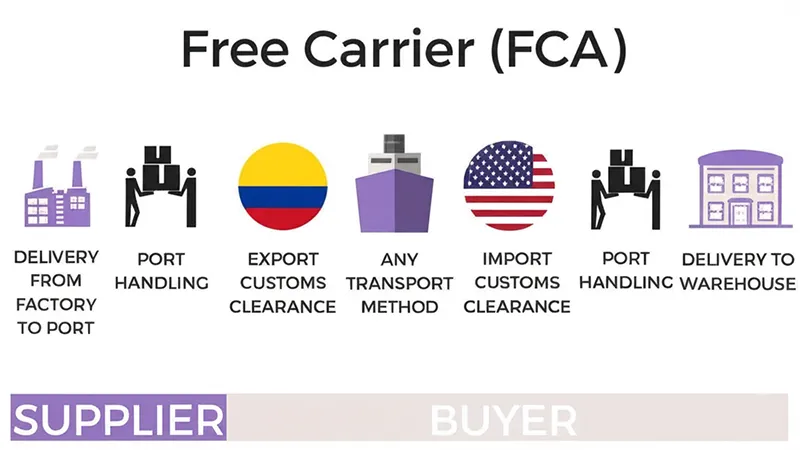
So, what is an FCA and what is its role in a shipment? The FCA Incoterm definition states that the seller must deliver the goods to a carrier or another person nominated by the buyer, at the seller's premises or another named place. A key part of the FCA definition is that the seller is responsible for all export customs formalities at the FCA origin. This makes the meaning of the FCA Incoterm distinct from terms like EXW, where the buyer handles export clearance.
The versatility of the FCA transport terms means it can be used for any mode of FCA transport, making it a modern and popular choice for global trade. The price quoted by a seller on terms FCA is often called the FCA price.
The Seller's Obligations Under the FCA Incoterm
Under the FCA delivery terms, the seller has a clear set of responsibilities focused on preparing the goods and handing them off at the origin country.
-
Delivery of Goods and Documents: The seller must provide the goods and the commercial invoice as required by the sales contract. They also must provide the buyer with proof of delivery once the goods have been handed over to the carrier.
-
Packaging and Wrapping: The seller is responsible for packaging the goods appropriately for the chosen mode of transport to ensure they can be carried safely. This includes proper labeling and marking for export.
-
Inland Transportation in the Country of Origin: The seller must arrange and pay for the transportation of the goods from their location to the agreed-upon "named place" for delivery. This could be their own warehouse or another location like a port or forwarder's facility.
-
Customs at Origin: This is a crucial seller responsibility under the FCA terms incoterms. The seller must handle and pay for all export clearance formalities required by the country of origin. This includes export licenses, security clearances, and pre-shipment inspections. The f.c.a. shipping point is always after export clearance.
-
Exit Charges: Any terminal handling charges or loading fees at the named point of departure are the seller's responsibility.
The Buyer's Obligations Under the FCA Incoterm
Once the goods are delivered FCA at the named place, the risk and majority of costs transfer to the buyer.
-
Cost of the Goods: The buyer must pay the price for the goods as stated in the sales contract.
-
International Freight: The buyer is responsible for contracting and paying for the main international carriage of the FCA shipment from the named place to the FCA destination. This gives the buyer control over their freight costs.
-
Arrival Expenditures: All costs upon arrival in the destination country are borne by the buyer, including unloading fees and terminal handling charges.
-
Customs upon Arrival: The buyer must handle and pay for all import customs clearance formalities. This includes providing the necessary documentation, paying import duties and taxes (like VAT), and handling any inspections.
-
Inland Transportation in the Destination Country: The buyer must arrange and pay for transportation from the port or airport of arrival to their final destination.
-
Payment of Fees: Any fees associated with import, transit, or final delivery are the buyer's responsibility.
The Two FCA Delivery Options: A Critical Distinction
The "FCA Incoterms meaning" hinges on the "named place" specified in the contract. This location dictates the exact point where risk transfers.
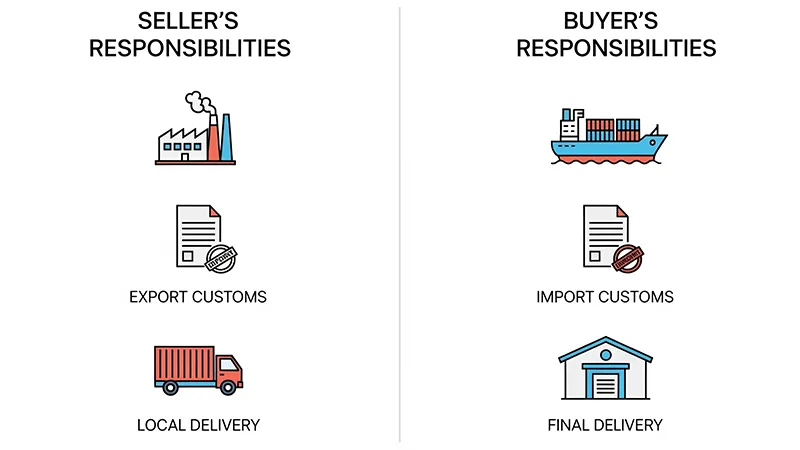
Option 1: FCA (Seller's Premises)
-
Example: "FCA, Seller's Facility, 123 Factory Rd, Shenzhen"
-
In this scenario, the named place is the seller's own warehouse. The FCA origin meaning is the seller's location.
-
The seller's responsibility ends once they have loaded the goods onto the buyer's nominated carrier (e.g., the truck sent by the buyer's freight forwarder). The seller is responsible for loading.
Option 2: FCA (Another Named Place)
-
Example: "FCA, Container Terminal, Port of Nansha"
-
Here, the named place is a location like a seaport, airport, or a freight forwarder's warehouse.
-
The seller arranges transport to this location. Their responsibility ends when the goods arrive on their vehicle, ready for unloading. The buyer is responsible for unloading the seller's vehicle.
FCA vs. Other Key Incoterms (FOB & EXW)
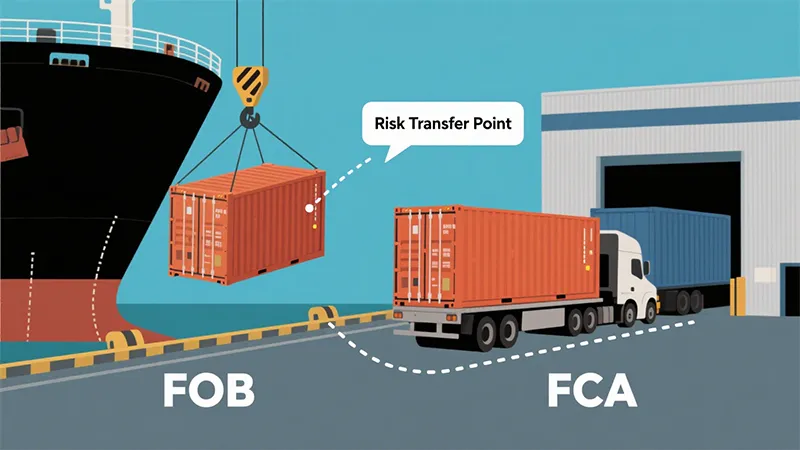
To understand what is FCA in incoterms, it's helpful to compare it to others.
| Incoterm | Who Handles Export Customs? | Where Does Risk Transfer? | Best For |
| FCA (Free Carrier) | Seller | At the named place in the origin country. | Any transport mode. |
| FOB (Free On Board) | Seller | "On board" the vessel at the origin port. | Sea freight only. |
| EXW (Ex Works) | Buyer | At the seller's factory door. | Domestic trade. |
The most important comparison is FCA vs. FOB. For containerized ocean freight, the FCA Incoterms 2020 rules strongly recommend using FCA instead of FOB. This is because a seller loses control of a container once it's dropped at the port terminal, but under FOB, they would still be liable for risk until it's loaded onto the ship. FCA resolves this by transferring risk at the terminal.
When Should You Use the FCA Incoterm?
The FCA shipping term is an excellent choice for buyers who want to control their international freight costs and logistics. It is strategic when:
-
You Have a Trusted Logistics Partner: Using FCA shipping allows you to nominate us as your carrier. We can then manage the main freight, leveraging our direct carrier contracts to secure better rates.
-
You Are Shipping by Air: The FCA inco term is perfectly suited for air freight.
-
You Are Consolidating Goods: You can have multiple suppliers deliver on FCA terms to our consolidation warehouse, where we combine them into one shipment.
Frequently Asked Questions (FAQ)
-
1. What is the FCA Incoterms insurance responsibility?
-
Under FCA Incoterms, neither the seller nor the buyer is obligated to purchase insurance. However, since the buyer bears the risk for the main international transit, it is highly recommended that the buyer secures cargo insurance.
-
-
2. What is the main difference between FCA Incoterms 2020 and 2010?
-
The FCA Incoterms 2020 introduced a key change. A buyer can now instruct their carrier to issue an onboard Bill of Lading to the seller after the goods have been loaded. This helps the seller meet the requirements of a letter of credit, which was a common issue under the FCA terms incoterms 2010.
-
-
3. What does "delivered FCA" mean?
-
The delivery FCA meaning is that the seller has fulfilled their obligation when they have passed the goods, cleared for export, to the buyer's chosen carrier at the agreed-upon location.
-
This section is designed for FAQPage Schema.
Navigating Incoterms with an Expert Partner
Choosing the right inco term fca is a strategic decision. The FCA term in shipping offers a fantastic balance of responsibility, but it requires a competent logistics partner to manage the fca freight from the moment of handover.
Our end-to-end, one-stop logistics solutions are perfectly designed to handle your FCA shipments. From the moment we are nominated as your carrier, we take control, managing the international freight, U.S. customs clearance with our own brokerage, and final-mile delivery. Let our 25 years of experience bring clarity to your shipping.
